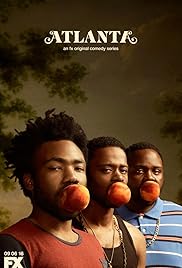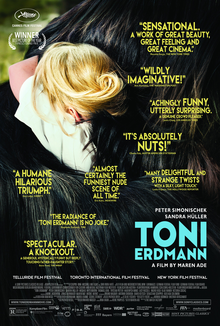Yes, this is a pop culture blog, and if you don't want to read anything serious about the current state of the world, please return tomorrow when I'll post a movie review. No hard feelings, I understand the occasional need to be an ostrich and get away from it all (which is what I've been doing for weeks on end). However, as a brown person who lives in the United States, I simply must express a few thoughts on the heinous news that is suffocating my Twitter feed, riling up my Muslim friends, and making me feel tired, angry, and sad about how quickly the world order can disintegrate.
First off, I'm not a Muslim, so I can't even pretend to know what you feel like right now if you are. Maybe you are scared of being deported, or being separated from your families. Maybe you are appalled that you can't get back into the country and resume the normal life you had before you left for a quick vacation. Maybe you are equally appalled that you can't leave the country to visit a sick relative because you won't be able to get back in. Maybe the majority of you are angry that the country you belong to is suddenly treating you like the "other" and not as an American. These are only some of the sentiments and worries I have seen expressed on Twitter, and there are countless more stories of fear, rage, and sadness inspired by this vile and pointless executive order.
I never thought I was treated any differently because of my race or religion (or lack thereof). My parents have let slip stories that make me suspect they were subjected to much more overt racism when they were young Indians travelling around the world, but I have spent my life being mostly oblivious. I spent a lot of time trying to fit in - when I moved to Canada at the age of nine, I quickly adopted a Canadian accent because I didn't want the kids to make fun of my Indian one. I did the same thing when I moved to America at the age of fourteen. I don't have a Muslim name, but I do have brown skin, so maybe I have been pulled aside at security at airports a couple of extra times than my white friends. In medical school interviews, I had numerous old white men ask me in surprise, "Wow, how come your English is so good?" I chalked it all up to ignorance; after all, why should everyone know that a lot of Indians' first language is English? But come to think of it, it's definitely a little bit racist.
I grew up in Bahrain, surrounded by friendly Arabs, and to this day, when I see a woman in a hijab or a man in a keffiyeh, it makes me smile because it is a reminder of my childhood. It does not inspire me to terror like it would a Fox News viewer. So I guess what I'm trying to say is, if you're Muslim, I am sorry that this country is treating you so poorly. And I'm sorry that there is so little I can do about it except write this blog post. I deleted my Uber app today as a paltry form of protest. Then I realized the majority of Uber drivers I've had have been Muslim immigrants - did I just screw over the livelihoods of the very people I was trying to stand up for? It's all so ridiculous and there seems to be no sane way to respond (if you're a Muslim Uber driver reading this, please register with Lyft and I promise I will sign up for a ride with you on that app instead).
Ultimately, we can't let this country keep going down this road. If we end up having a Muslim registry, I'll sign up and I hope you will too. I refuse to act as though Muslims and refugees are people to be scared of, just as I would hope that when I walk down the street, people aren't looking at my brown skin and quaking in fear. I'm just a person, you're just a person, and we all have every right to be here. We were promised Life, Liberty, and the pursuit of Happiness. Let's not settle for anything less.
First off, I'm not a Muslim, so I can't even pretend to know what you feel like right now if you are. Maybe you are scared of being deported, or being separated from your families. Maybe you are appalled that you can't get back into the country and resume the normal life you had before you left for a quick vacation. Maybe you are equally appalled that you can't leave the country to visit a sick relative because you won't be able to get back in. Maybe the majority of you are angry that the country you belong to is suddenly treating you like the "other" and not as an American. These are only some of the sentiments and worries I have seen expressed on Twitter, and there are countless more stories of fear, rage, and sadness inspired by this vile and pointless executive order.
I never thought I was treated any differently because of my race or religion (or lack thereof). My parents have let slip stories that make me suspect they were subjected to much more overt racism when they were young Indians travelling around the world, but I have spent my life being mostly oblivious. I spent a lot of time trying to fit in - when I moved to Canada at the age of nine, I quickly adopted a Canadian accent because I didn't want the kids to make fun of my Indian one. I did the same thing when I moved to America at the age of fourteen. I don't have a Muslim name, but I do have brown skin, so maybe I have been pulled aside at security at airports a couple of extra times than my white friends. In medical school interviews, I had numerous old white men ask me in surprise, "Wow, how come your English is so good?" I chalked it all up to ignorance; after all, why should everyone know that a lot of Indians' first language is English? But come to think of it, it's definitely a little bit racist.
I grew up in Bahrain, surrounded by friendly Arabs, and to this day, when I see a woman in a hijab or a man in a keffiyeh, it makes me smile because it is a reminder of my childhood. It does not inspire me to terror like it would a Fox News viewer. So I guess what I'm trying to say is, if you're Muslim, I am sorry that this country is treating you so poorly. And I'm sorry that there is so little I can do about it except write this blog post. I deleted my Uber app today as a paltry form of protest. Then I realized the majority of Uber drivers I've had have been Muslim immigrants - did I just screw over the livelihoods of the very people I was trying to stand up for? It's all so ridiculous and there seems to be no sane way to respond (if you're a Muslim Uber driver reading this, please register with Lyft and I promise I will sign up for a ride with you on that app instead).
Ultimately, we can't let this country keep going down this road. If we end up having a Muslim registry, I'll sign up and I hope you will too. I refuse to act as though Muslims and refugees are people to be scared of, just as I would hope that when I walk down the street, people aren't looking at my brown skin and quaking in fear. I'm just a person, you're just a person, and we all have every right to be here. We were promised Life, Liberty, and the pursuit of Happiness. Let's not settle for anything less.


.png)

.png)


.jpg)


